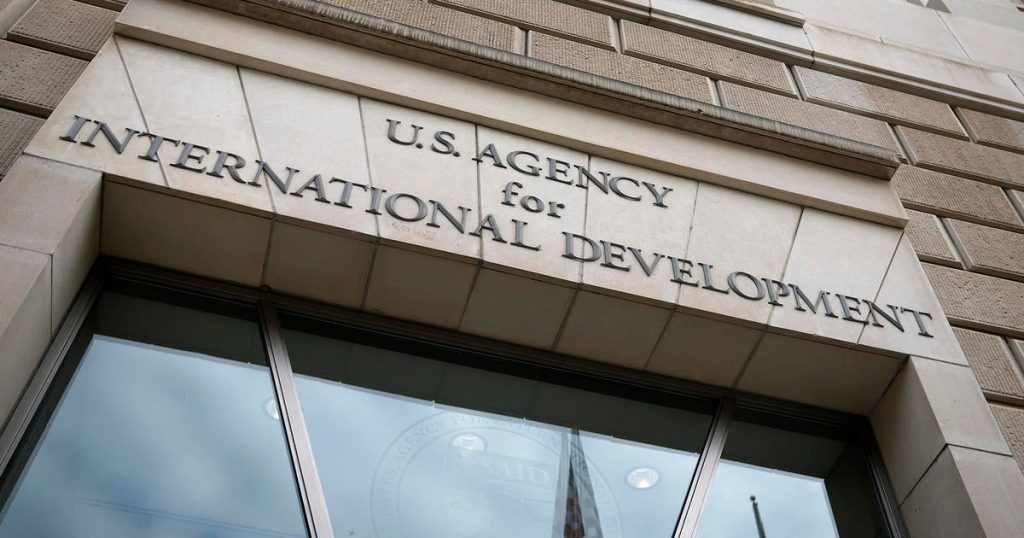Disputes Over USAID Funding Jeopardize Critical Food Shipments in Boston
Almost $500 million in food aid is at risk of spoiling as it sits in ports, ships, and warehouses, following the Trump administration’s decision to pause funding for the U.S. Agency for International Development (USAID). The February 10 report from USAID’s inspector general has highlighted the significant risks associated with the "safeguarding and distribution" of $8.2 billion in unspent humanitarian aid. This pause, which placed almost all USAID staff on administrative leave and ordered a review of U.S. foreign assistance programs, has caused alarm among those involved in the aid supply chain, from farmers to distributors and the organizations that rely on this aid to support vulnerable populations worldwide.
USAID’s Role in Global Food Assistance
USAID has long been a critical player in providing humanitarian aid to over 100 countries. The agency typically buys food directly from U.S. farmers and manufacturers, who have historically supplied about 40% of international food assistance, according to a 2021 report from the Congressional Research Service. This direct purchasing not only supports global food security but also benefits American farmers by providing a stable market for their products. For instance, Kansas sorghum producers, whose livelihood depends on these contracts, are now facing uncertainty about the future of their market. The recent pause in USAID funding has left these farmers and others worried about the potential economic and humanitarian consequences.
Immediate Concerns for Food Aid
The February 10 report from the USAID inspector general noted that $489 million worth of food is currently at risk of spoilage, with an additional 500,000 metric tons of food either in transit or ready to be shipped abroad. These commodities, which include wheat, soybeans, sorghum, and split peas, are essential for addressing hunger and malnutrition in many developing countries. Ashley Stanley, CEO of Spoonfuls, a Massachusetts-based organization that redirects excess food to aid groups, emphasized the urgency of the situation. "When the food doesn’t get to where it needs to go, it winds up in a landfill, and that has devastating effects," she told CBS Boston. The environmental and ethical implications of such waste are significant, especially when the food could otherwise save lives.
Uncertainty and Government Response
The U.S. State Department, now tasked with overseeing USAID, has not yet responded to requests for comment on the situation. The Trump administration’s targeting of USAID, driven by a broader desire to cut the size of the federal government, has thrown the agency’s future into disarray. President Trump and businessman Elon Musk, who heads the Department of Government Efficiency (DOGE), have both expressed strong criticisms of USAID, with Musk calling for its shutdown, labeling it "beyond repair." The uncertainty surrounding the agency’s future has left many humanitarian organizations in a state of limbo, unsure of how to proceed with their aid efforts and the fate of the food already purchased and allocated.
Impact on Global Humanitarian Efforts
The Norwegian Refugee Council (NRC), one of the largest humanitarian groups, described the U.S. cutoff as the most devastating in its 79-year history. The NRC announced on Monday that it will have to suspend programs serving hundreds of thousands of people in 20 countries. The impact of this decision will be particularly severe in deeply neglected regions like Burkina Faso, where the NRC is the sole organization providing clean water to 300,000 people trapped in the blockaded city of Djibo. In war-torn Sudan, the NRC supports nearly 500 bakeries in Darfur, which provide daily subsidized bread to hundreds of thousands of hunger-stricken individuals. The suspension of these programs could lead to increased suffering and even loss of life in these vulnerable communities.
Seeking Solutions and Continued Advocacy
Despite the challenges, there are ongoing efforts to address the situation and ensure that the critical food aid reaches those in need. Humanitarian organizations, farmers, and concerned citizens are urging the government to reconsider its decision and to prioritize the well-being of the millions of people who depend on this aid. The federal judge’s intervention on Friday, which prevented the Trump administration from placing 2,200 USAID employees on administrative leave, provides a glimmer of hope. However, more action is needed to resolve the funding dispute and to ensure that the food aid system remains robust and effective. The stakes are high, and the consequences of inaction could be dire for both the global communities in need and the U.S. farmers who have relied on USAID as a steady source of income.












